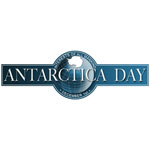Antarctica Day Date in the current year: December 1, 2026
 Antarctica Day is an international holiday that was established in honor of the Earth’s southernmost and least-populated continent. It is celebrated annually on December 1 to commemorate the signing anniversary of the Antarctic Treaty.
Antarctica Day is an international holiday that was established in honor of the Earth’s southernmost and least-populated continent. It is celebrated annually on December 1 to commemorate the signing anniversary of the Antarctic Treaty.A belief in the existence of a continent in the far south of the globe had existed since classical antiquity, but Antarctica wasn’t discovered until the 19th century. The first person to cross the Antarctic Circle was Captain James Cook, but he didn’t actually reach the continent. It is believed that the Antarctic Peninsula was first sighted in January 1820 by one of the three people: Royal Navy captain Edward Bransfield, Imperial Russian Navy captain Fabian Gottlieb von Bellingshausen, or American seal hunter Nathaniel Palmer.
Since its discovery, territorial claims on Antarctica have been made by several sovereign states: Argentina, Australia, Chile, France, New Zealand, Norway, and the United Kingdom. At some point, the United States considered establishing a claim in Antarctica, but never actually went through with it.
International tension concerning Antarctica increased significantly after World War II and the beginning of the Cold War, prompting negotiations over a treaty that would regulate international relations with respect to the continent. The Antarctic Treaty was signed on December 1, 1959 by twelve countries that were active in Antarctica during the International Geophysical Year, held between July 1, 1957 and December 31, 1958.
Antarctica Day was launched in 2010 by the Foundation for the Good Governance of International Spaces (Our Spaces), an international charity founded a year prior to commemorate the 50th anniversary of the Antarctic Treaty. The main goals of Our Spaces are to raise awareness, advance education, and promote research regarding the management and governance of spaces that lie beyond national boundaries, with particular emphasis on the polar regions of the Earth.
Antarctica Day promotes the international cooperation that makes joint governance of Antarctica possible and encourages educators around the world to teach their students about Antarctica and the Antarctic Treaty.
Antarctica Day events and activities are organized in many countries across the world by national Antarctic programs, schools, museums, science centers, various other organizations, and individuals with professional or personal interest in Antarctica. They include lectures, talks, webinars, presentations, round tables, film screenings, flag raising ceremonies, virtual balloon launches, photo contests, essay writing contests, meetings with people who have worked at Antarctic research stations, social media campaigns, and more.
You can observe Antarctica Day by participating in one of the many in-person and virtual events held around the globe, reading a book, watching a documentary or listening to a podcast about the discovery and exploration of Antarctica, flying the flag of Antarctica, donating to a charity that supports conservation efforts in the Antarctic region, and spreading the word on social media with the hashtag #AntarcticaDay.
- Category
- International Observances
- Tags
- Antarctica Day, international observances, Antarctic Treaty, Foundation for the Good Governance of International Spaces